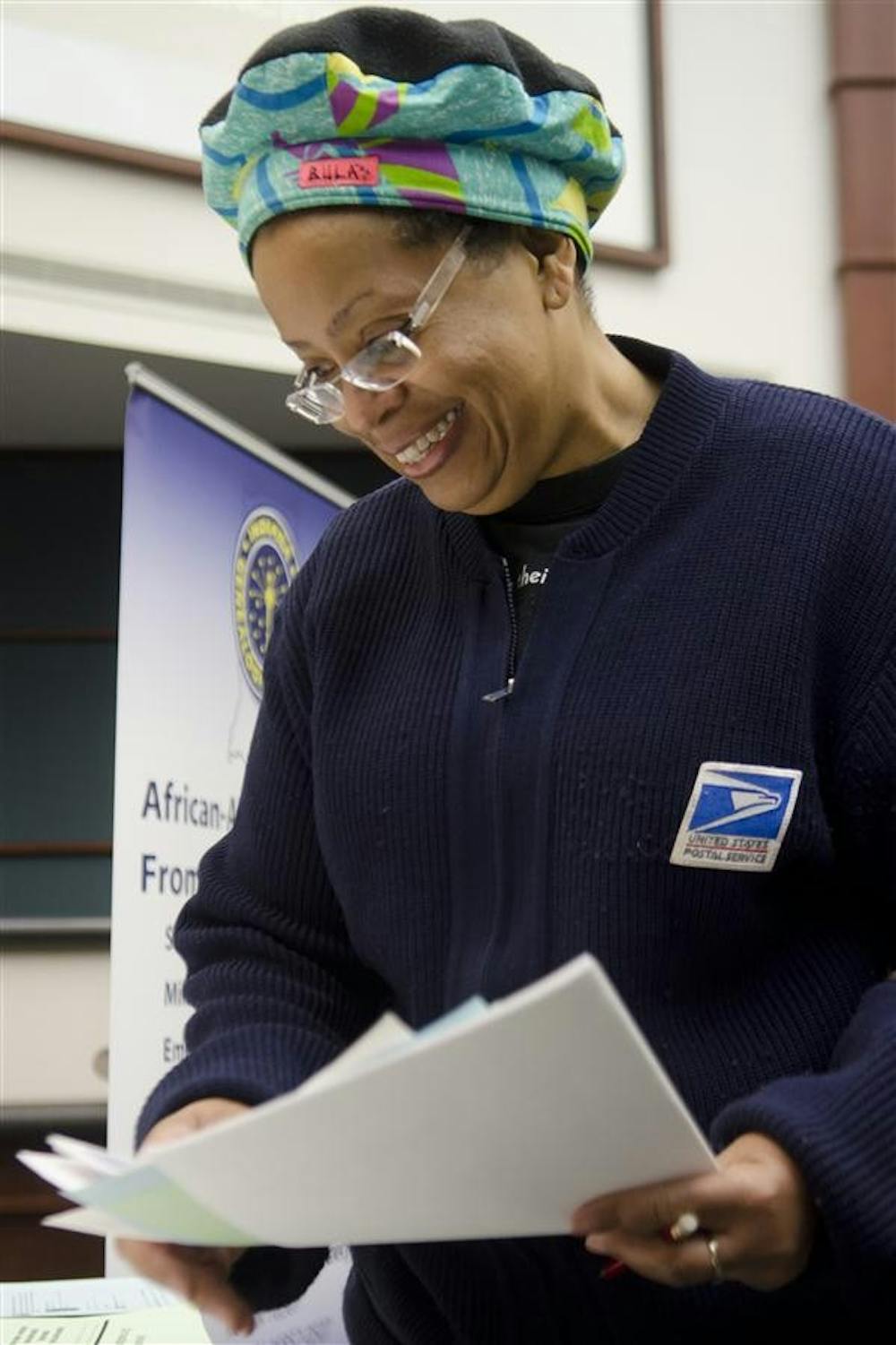Bloomington resident Wanda Hosea has traced her family tree back to her great-great-grandfather, a slave on a cotton plantation in Georgia.
But she plans to learn more.
After attending a genealogy workshop Saturday that was led by Donna Stokes-Lucas, the Indiana Genealogical Society’s regional district manager, Hosea said she plans to dig deeper into records about her ancestors — as far back as she can go.
“When you understand where you come from and who you are, you can do some things for your family down the generations,” Hosea said. “When you know your history, you know your greatness.”
The genealogy workshop was part of the City of Bloomington’s Black History Month celebration in the City Hall Council Chambers. Stokes-Lucas provided a handful of attendees with tips and resources for researching ancestry.
The United States Census, which has been recorded every 10 years since 1790, is a researcher’s most vital tool, Stokes-Lucas said.
Initially, Hosea purchased software to assist in research about her ancestors. The software, she said, was not much help. But with Stokes-Lucas’s tips, Hosea said she plans to search military records to find new leads.
Stokes-Lucas mentioned several situations that make it difficult to trace back family histories, such as when women marry and change their last name. But African-Americans often face an additional obstacle.
“Here in the United States, slavery clearly poses as an obstacle, but you can still research with the technology and databases and information that is available,” Stokes-Lucas said. “It is becoming easier to get through those brick walls for everybody.”
To research enslaved family members, Stokes-Lucas said African-Americans must identify the slaveholder of their ancestors.
“Through those records, because blacks were considered property, you will find, hopefully, some information that can answer some of those questions of when they came, how they came and so forth,” Stokes-Lucas said.
Stokes-Lucas said she has also researched back to her great-great-grandfather. In 1866 in Griffin, Ga., Stokes-Lucas said, the great-great grandfather and other members of the community sent a letter to the Freedman’s Bureau. Through the letter, her relative and the other individuals established resolutions to prevent additional inequalities to colored citizens, she said.
“It makes me more appreciative of history, it makes me more appreciative of the struggles that this country has gone through to maintain themselves and it motivates you to do better than those who have gone before us,” Stokes-Lucas said. “I’m hoping, as I do this for myself and my great grandchildren yet to come, that I can leave them with a legacy that will inspire them to do the same.”
Locals learn family histories
Black History Month genealogy event attracts residents to research past

Get stories like this in your inbox
Subscribe





